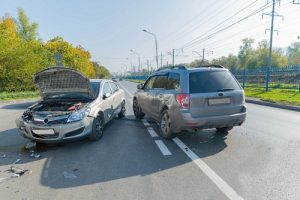
Risk Factors of PTSD
There are several risk factors that have been found to contribute to whether or not a person experiences PTSD (post-traumatic stress disorder) following a car accident. These include having experienced a traumatic event in the past, the difficulties one experienced in dealing with that past traumatic event and a family history of emotional problems.
Other risk factors include whether or not the traumatic event was life-threatening, how much support a person received following the trauma and the immediate emotional response following the trauma.
Signs of PTSD Following a Car Accident
After a car accident, a person may wonder if they are experiencing symptoms of PTSD. While some feelings of distress and even anger are normal after a collision, lasting feelings may indicate that something more is going on. Here are symptoms that are typically associated with PTSD.
- Reminders of the event trigger anxiety and an increased heart rate. You may hear a horn or even screeching tires and feel panicked.
- You are more on edge than typical when driving. You frequently check your mirrors and look over your shoulder to be sure nothing is coming at you.
- You may attempt to avoid driving on the highway or on specific roads. You may go out of your way to not drive on certain roads, despite adding time to your commute.
You may experience one or all of these symptoms of PTSD following a car accident. While every person is different, these feelings should subside over time. When they don’t, a person may be experiencing PTSD.
Getting Help
There are many different treatments for those suffering with PTSD. If you or a loved one is experiencing a problem with dealing with emotional issues, fear, anxiety, depression or other mental health matter, please speak to a doctor about it as soon as possible. If you have a primary care physician speak to them about your treatment options. If you have health insurance, your health insurance company may be able to provide you with a list of providers that handle matters related to PTSD or its accompanying symptoms. If it is an emergency, please call 911. You don’t have to suffer in silence.
No matter how someone chooses to help themselves, the important thing to know is that there is a way to overcome emotional distress and the way that you are or someone you love is feeling today does not have to be permanent.
If you have been involved in a car accident in Charlotte or elsewhere in North Carolina, you may be entitled to compensation for physical and emotional injuries. Reach out to our experienced team of Charlotte car accident attorneys to discover more about your legal options. A consultation with our office to see if we can help won’t cost you a dime. Call now to speak to someone about how we may be able to help.